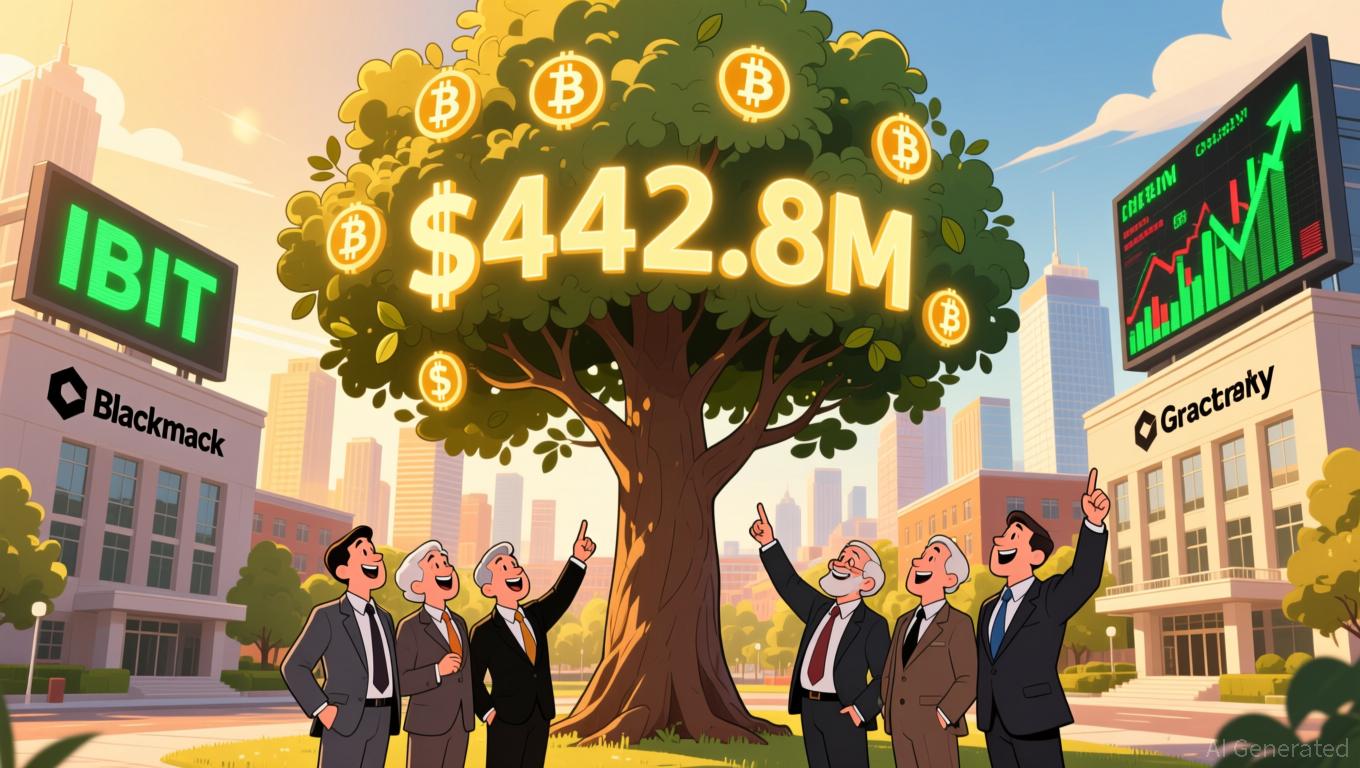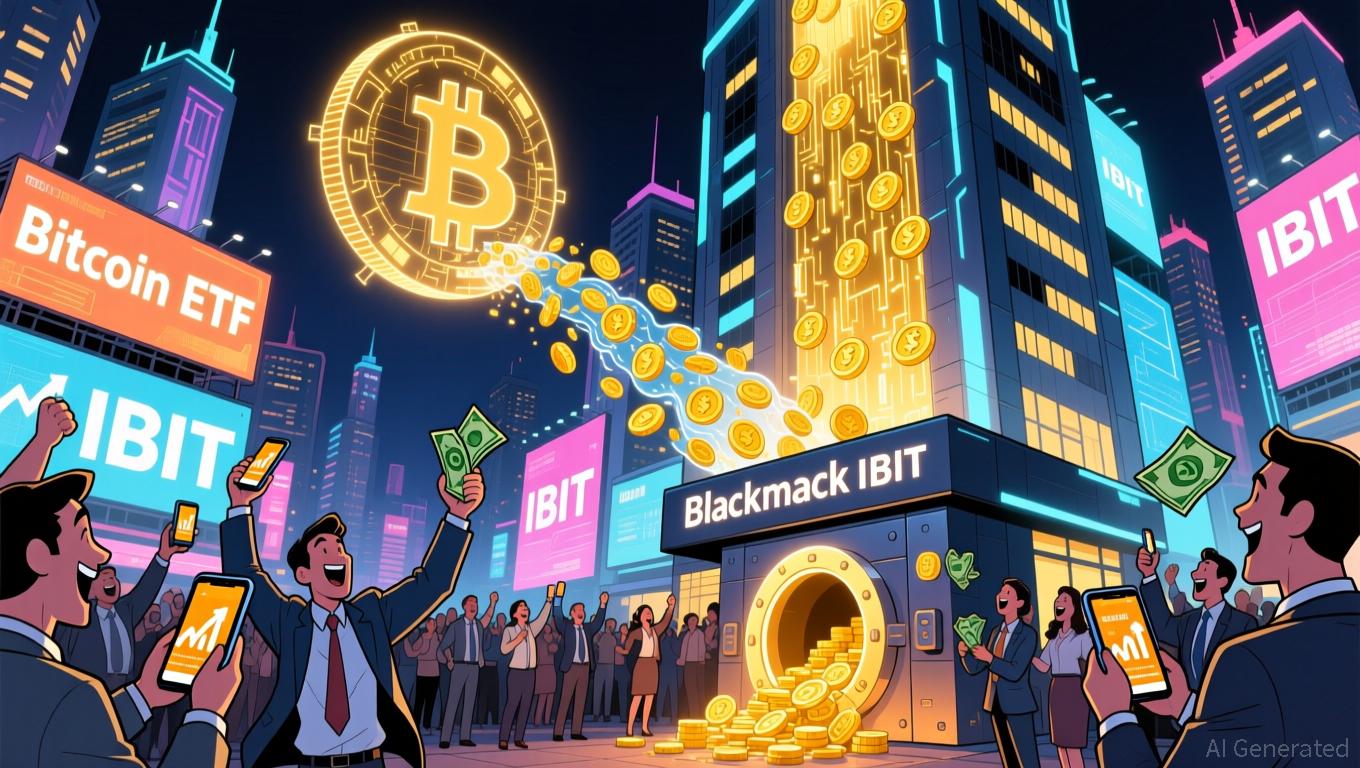Trump's approach closely resembles Biden's, and both are dealing with criticism over rising inflation
- Trump's inflation policies mirror Biden's, facing criticism for downplaying price pressures while implementing measures economists say worsen costs. - Tariff hikes and deregulation drove consumer prices up to 3% by September 2024, with Trump later cutting agricultural tariffs to address grocery price spikes. - Proposed $2,000 dividend checks from tariff revenue face fiscal concerns, while deregulatory moves clash with Biden-era consumer protections. - Mixed policies include mass deportations raising labo
Trump's administration is increasingly adopting tactics similar to those used by Joe Biden to tackle inflation, with both leaders facing backlash for minimizing concerns about rising prices while enacting measures that many economists say drive up costs for everyday Americans. These similarities have attracted attention from experts, who point out that
After Trump introduced broad tariffs, consumer prices climbed from a 2.3% yearly increase in April 2024 to 3% by September, a development that

The administration's inflation response goes beyond tariffs. Trump has floated the idea of giving Americans $2,000 checks funded by tariff revenue, though economists caution that this plan is not financially viable given the size of the national debt and the fact that many tariff-related costs have already been absorbed by consumers
Trump's actions have also rolled back some consumer protections introduced under Biden. The Department of Transportation recently eliminated a rule that would have required airlines to compensate travelers for delays, a Biden-era measure that critics said would have encouraged better punctuality
Although Trump promotes his policies as drivers of job growth, opponents point to unintended side effects. For example, his large-scale deportation proposals have been associated with increased construction expenses due to a shrinking workforce in sectors that rely heavily on immigrants
The administration's inconsistent approach has drawn parallels to Biden's early days in office, when officials downplayed inflation even as prices surged. Michael Strain, who leads economic policy studies at the American Enterprise Institute, observed that both presidents have "minimized inflation as an issue" while focusing on other economic metrics
Disclaimer: The content of this article solely reflects the author's opinion and does not represent the platform in any capacity. This article is not intended to serve as a reference for making investment decisions.
You may also like
Bitcoin Updates: Corporate Bitcoin Holdings Transform Crypto Industry While MicroStrategy Stands Strong Amid Market Fluctuations
- MicroStrategy's Michael Saylor denied Bitcoin sale rumors, reaffirming the company's aggressive BTC accumulation strategy despite market volatility. - The firm holds 641,692 BTC ($61.3B) but faces liquidity risks as its market value dips below holdings' net asset value for the first time. - Leveraged debt ($47.5B) and falling BTC prices raise concerns about a "death spiral," though analysts suggest forced sales are unlikely until 2027. - Saylor's bullish stance contrasts with market jitters, as corporate

Bitcoin Updates: Harvard’s Investment in Bitcoin Challenges Previous Doubts as More Institutions Join
- Harvard University tripled its Bitcoin stake in IBIT, now holding $442.8M in the ETF, making it the fund's 16th-largest holder. - The move defies past skepticism from Harvard economists like Kenneth Rogoff, who once predicted Bitcoin would fall to "$100 rather than $100,000". - Institutional adoption grows as Abu Dhabi's Al Warda and Emory University also boosted Bitcoin ETF holdings, despite recent market volatility and outflows. - Harvard's 0.6% Bitcoin allocation in its $57B portfolio highlights crypt

Bitcoin Updates: Bitcoin Drops, Harvard's $364 Million ETF Investment Shows Institutional Commitment
- Harvard University increased its BlackRock IBIT Bitcoin ETF stake by 257% to $364.4M, becoming a top institutional holder. - The $50B endowment also doubled gold ETF holdings, treating both assets as inflation hedges amid macroeconomic uncertainty. - Emory and Abu Dhabi's Al Warda similarly boosted crypto-linked ETFs, signaling institutional confidence in regulated digital assets. - Analysts highlight Harvard's ETF adoption as rare validation, with U.S. spot Bitcoin ETFs attracting $60.8B in inflows sinc

Astar 2.0's Tactical Rollout and Its Impact on DeFi Advancements
- Astar 2.0 introduces institutional-grade DeFi architecture with 6-second block times and 150,000 TPS via Polkadot's async protocol. - Cross-chain interoperability with LayerZero/CCIP enables seamless asset transfers across Ethereum , BSC, and Polkadot ecosystems. - Strategic partnerships with Mizuho Bank, Casio, and Japan Airlines demonstrate real-world applications in CBDCs, logistics, and digital rewards. - $3.16M institutional ASTR purchase and 20% QoQ wallet growth highlight growing confidence in its
